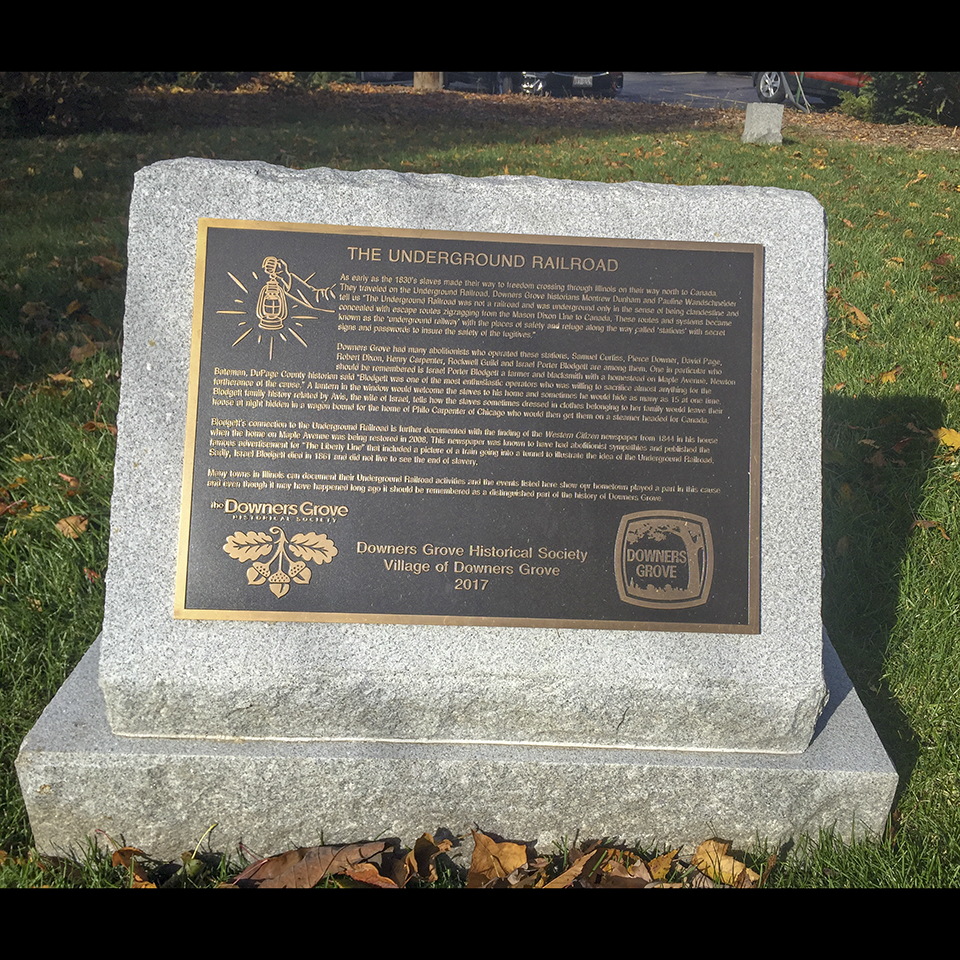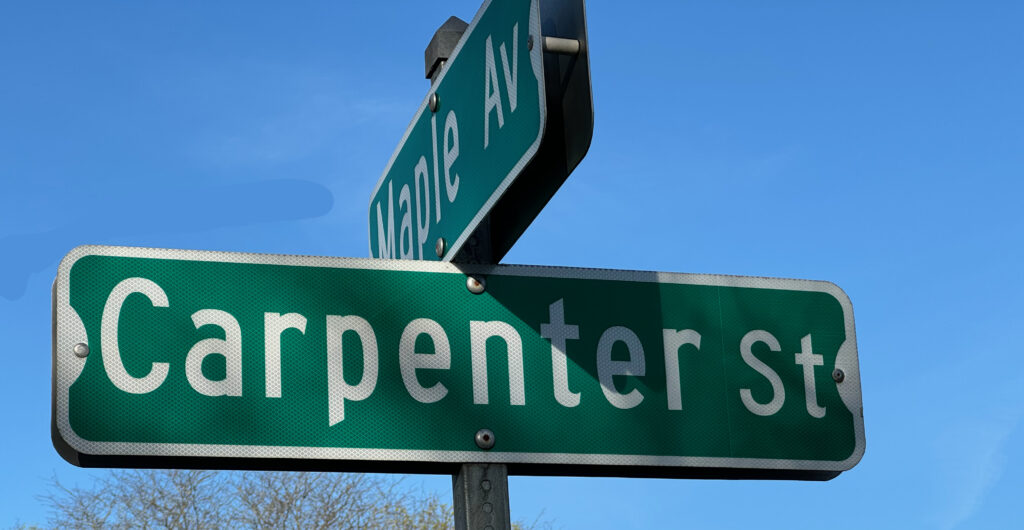Main St. Cemetery Marker: G3
This commemorative stone and plaque were placed in the cemetery in 2017 to honor the efforts of abolitionists of Downers Grove, many of whom are buried in the Downers Grove Main Street Cemetery.
The plaque is engraved as follows:
The Underground Railroad
As early as the 1830s slaves made their way to freedom crossing through Illinois on their way north to Canada. They traveled on the Underground Railroad. Downers Grove historians Montrew Dunham and Pauline Wandschneider tell us The Underground Railroad was not a railroad and was underground only in the sense of being clandestine and concealed with escape routes zigzagging from the Mason Dixon Line to Canada. These routes and systems became known as the underground railway with places of safety and refuge along the way called stations with secret signs and passwords to insure safety of the fugitives.
Downers Grove had many abolitionists who operated these stations. Samuel Curtiss, Pierce Downer, David Page, Robert Dixon, Henry Carpenter, Rockwell Guild, and Israel Porter Blodgett are among them. One in particular who should be remembered is Israel Porter Blodgett a farmer and blacksmith with a homestead on Maple Avenue. Newton Bateman, DuPage County historian said Blodgett was one of the most enthusiastic operators who was willing to do almost anything for the furtherance of the cause. A lantern in the window would welcome slaves to his home and sometimes he would hide as many as 15 at a time. Blodgett family history related by Avis, the wife of Israel, tells how the slaves sometimes dressed in clothes belonging to her family would leave their house at night hidden in a wagon bound for the home of Philo Carpenter of Chicago who would get them on a steamer headed for Canada.
Blodgetts connection to the Underground Railroad is further documented with the finding of the Western Citizen newspaper from 1844 in his house when the home on Maple Avenue was being restored in 2008. This newspaper was known to have had abolitionist sympathies and published the famous advertisement for the Liberty Line that included a picture of a train going into a tunnel to illustrate the idea of the Underground Railroad. Sadly, Blodgett died in 1861 and did not live to see the end of slavery.
Many towns can document their Underground Railroad activities and the events listed here show our hometown played a part in this cause and even though it may have happened along time ago it should be remembered as a distinguished part of the history of Downers Grove.




